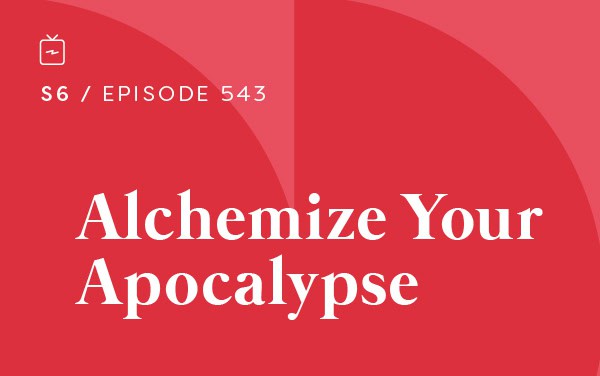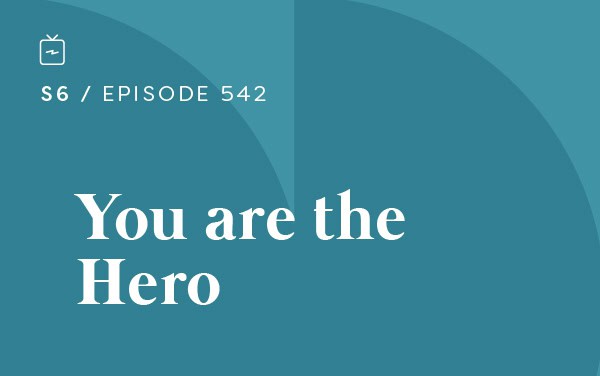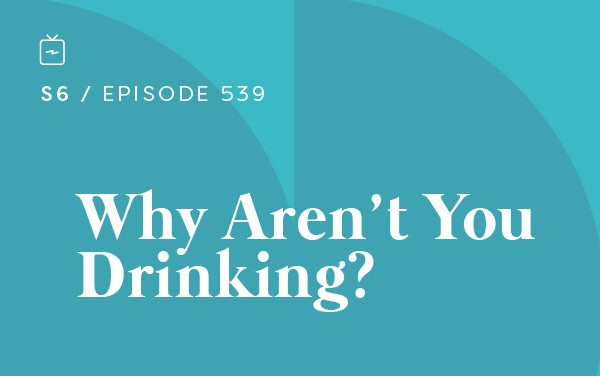
by Kris Oyen | Jul 14, 2025 | Podcast
Podcast: Play in new window | Download
Subscribe to the Recovery Elevator Podcast Apple Podcasts | | More
Today we have Ronnie. He is 41 years old from Kiowa, CO and took his last drink on June 1st, 2025.
This episode brought to you by:
Better Help – 10% off of your first month #sponsored
Café RE – the social app for sober people.
[03:17] Thoughts from Paul:
From the cavemen to the ancient Greeks, to modern humans, there’s always an apocalypse on the horizon. The apocalypse outside of us, we can’t control and there has never not been one. The only apocalypse you can control is the one caused by alcohol which is happening inside of you.
Paul reminds us that no matter how fearful the news programs and the politicians want you to be, we’ve never not had an external apocalypse looming and geological record will tell you the same.
Disconnect from all of the news and connect to yourself, others, nature, a ripe mango, a snuggle with a dog because you know what? We’re okay. Get yourself some time away from alcohol and you’re going to be very much okay.
[07:54] Paul introduces Ronnie:
Ronnie is 41 years old, lives in Kiowa, CO with his wife and four children. Ronnie works as a home inspector. For fun, Ronnie enjoys spending time with his kids and spending time outside. His family has 40 acres and a variety of animals which his children show with 4-H.
Ronnie began drinking when he was 17 after discovering that alcohol was a magical elixir that suppressed his inhibitions and insecurities. By the time Ronnie was in college, he was partying regularly. After a few semesters, he had failed out of school, moved back home and began working in construction.
After some time, Ronnie moved to Colorado and began working for a faith-based non-profit organization in addition to being a home inspector on the side. Drinking was something they did not allow their staff to do. This enabled Ronnie to remain mostly sober during that time, only drinking when he was around friends back home.
Ronnie and his wife married in 2011 and moved to Portland, Oregon. He grew accustomed to the culture of going out for cups of coffee, but when they returned to Colorado Ronnie saw that the culture there was going out for beers. This began alcohol creeping back into his life slowly.
When COVID happened, his job with the non-profit ended and Ronnie was home inspecting full time. Ronnie says they lost two and a half streams of income, and it left him depressed and having trouble with night terrors. He started using alcohol to help him sleep. It turned into daily drinking which led Ronnie to start exploring whether or not he had an issue. In the process, he discovered the RE podcast.
Around this time, Ronnie began to try moderation. He was using a sobriety tracker and said he reset it over 20 times before he was able to get a week. After he was able to stay sober for three weeks, he thought he had it under control but before long was back to drinking daily.
On that night of what ended up being Ronnie’s last drink, he awoke to his heart racing and massive anxiety. He told his wife that he thought he had a problem which she said she knew, and instead of being judgmental, she asked what she could do to help. The next day Ronnie learned that his wife had contacted some friends that had dealt with addictions, and they were all ready to help.
Within the first day, Ronnie threw out all of the alcohol in the home. This opened up the conversation with his kids about addictions and healthy ways of coping with emotions. Over the last 12 days, Ronnie has seen his sleep improved. He has realized that alcohol no longer has a place in his or his family’s life.
Ronnie says that every time he tells someone about his addiction, a weight lifts. This motivates him to keep going. He is finding healthy ways to deal with stress and sleep. Exercise, meditation, audiobooks and listening to the RE podcast have been helpful to him on this journey.
Recovery Elevator
You took the elevator down, you gotta take the stairs back up
We can do this
I love you guys
RE on Instagram
Recovery Elevator YouTube
Sobriety Tracker iTunes

by Kris Oyen | Jul 7, 2025 | Podcast
Podcast: Play in new window | Download
Subscribe to the Recovery Elevator Podcast Apple Podcasts | | More
Today we have Marcy. She’s 42 years old and lives in Seattle, WA. Marcy took her last drink on October 15th, 2020.
This episode brought to you by:
Better Help – 10% off of your first month #sponsored
Exact Nature – 20% off your order with code RE20
Paul just finished the rough draft of his second book entitled Dolce Vita, The Good Life and expects it to be released this September.
[00:00] Thoughts from Paul:
In a recent article presented on Newsbreak entitled Alcohol is Killing More Americans Today than 20 Years Ago, it shares that mortality from liver disease has increased significantly across most demographic groups in the US from 1999 to 2022. Death from liver disease went from 6.7 to 12.5 deaths per 100,000 people. The annual increase was higher among women than men, and young people showed “concerning trends”. And of course, minority populations are hit hardest. American Indian and Alaska Native populations, faced the highest death rates. Those increased from about 25 to nearly 47 per 100,000 over the last 20 years.
While this podcast is supposed to be uplifting and positive it also has to be real. The spirit alcohol is claiming more lives than ever.
Remember last week’s episode titled The Quiet Revolution? You are part of the not so anonymous army that solves this… Your quitting drinking is the answer for everyone else who struggles with addiction. You’re turning your gaze inward when people in charge are pointing their finger outward. You are the hero.
[00:00] Paul introduces Marcy:
Marcy is 42 years old and lives in Seattle, WA with her partner and their cat. She works at a production company as a creative producer and makes psychedelic music videos in her spare time. For fun, she enjoys the outdoors and says the Pacific Northwest is a beautiful place to be outside.
Marcy says she was a very shy kid with a lot of anxiety. She had her first drink when she was 16 and by 18, she had a fake ID and spent a lot of time in bars and drinking almost daily. Her drinking never looked normal, Marcy says.
Marcy had her first blackout at her bachelorette party in her mid-twenties. Those began to become normal for her which began to concern her. Marcy would tell everyone that she was quitting drinking but was never able to succeed.
Alcohol began to put a strain on Marcy’s marriage. She realized she needed to do something to fix it. She began to attend AA and tried to work the steps but was struggling with being honest with herself and others about her problem and continued to drink.
Marcy and her partner ended up divorcing, which sent her on a downward spiral since she no longer had anyone to be accountable to. After she was robbed one night, her parents talked her into going to inpatient rehab. She was supposed to stay for 30 days but only made it through 11 and decided to attend outpatient rehab instead. Marcy was able to fake her way through the outpatient program while she was still drinking.
From 2016 to 2019, Marcy says she was on a merry-go-round from hell. She would try to change, fail and then beat herself up. She returned to AA, found a sponsor and had a service position that helped her build a new routine. She made it to 30 days sober and then relapsed which sent her back into a cycle that Marcy says was worse than ever.
An extreme rock bottom found Marcy quitting again. After two months without drinking, a friend wanted Marcy to attend a meeting she was speaking at. This led Marcy to return to AA. She threw herself all-in and attended a meeting every day for the next year.
These days life for Marcy is mellow instead of chaotic. She says she has the capacity to explore her creativity, goes to work every day and enjoys yoga regularly. Her tools for dealing with anxiety are breathing and knowing her boundaries and limits.
Recovery Elevator
You took the elevator down; you’ve got to take the stairs back up.
We can do this.
RE on Instagram
Recovery Elevator YouTube
Sobriety Tracker iTunes

by Kris Oyen | Jun 30, 2025 | Podcast
Podcast: Play in new window | Download
Subscribe to the Recovery Elevator Podcast Apple Podcasts | | More
Today we have Marisa. She is 50 years old from Fairfax, VA and she took her last drink on March 17th, 2024.
This episode brought to you by:
Better Help – 10% off of your first month #sponsored
Exact Nature – 20% off your order with code RE20
Check out the upcoming Recovery Elevator Events:
August 6th – 10th – Bozeman Retreat – we have about 12 spots left
October 4th – 14th – Peru
January 2026 – Restore
And much more coming in 2026!
[03:18] Intro summary:
You may be listening right now and feeling tired. Not just sleepy tired, but soul tired. This kind of tiredness comes from trying to clean up your inner world while the outer world feels like it’s run by toddlers having the world’s most expensive tantrum.
You’re choosing consciousness while others choose chaos. You’re picking love while others are picking fights. You’re building your spiritual muscles while they’re flexing bank accounts and crypto wallets.
This is a contradiction that we are living in and it’s hard to be sober, raw, real and authentic in a dysfunctional world. However, the quiet revolution matters. The decision to face our demons instead of drowning them matters. The choice to feel everything instead of nothing matters. You’re not just quitting drinking—you’re quitting the lie that says we have to be drunk to survive this world.
Keep going. The world needs your consciousness more than it needs another unconscious knee jerk reaction. Ditching the booze and cleaning up your inner world is how we solve this mess.
[07:58] Paul introduces Marisa:
Marisa is 50 years old and lives in Fairfax, VA. She is engaged and has a 12-year-old daughter. She works as a government contractor, enjoys live music, spending time outside, traveling, reading and binge-watching TV.
Marisa says that for her, alcoholism was not a progressive disease. She had her first drink at 12 and the first time she got very drunk was 13 and she loved it. Alcohol assisted her in numbing the pain of abuse that she experienced in her childhood. Marisa has always known alcohol was a problem for her.
Over the next 30 or so years, there were ebbs and flows to Marisa’s drinking. She always had an excuse/reason that she chose to drink like she did. Because she was high functioning, no one really knew about her issues. When she started seeing a therapist in 2022, she told them about her drinking and says a weight was lifted. Marisa met with a substance abuse counselor a few times after that, but didn’t have a good experience and wasn’t ready to try AA again.
Marisa would try to moderate for the next few years but eventually knew something had to change. She told a friend of hers who she knew was in recovery that she had an intention of quitting for 30 days and began to attend AA.
Since quitting, Marisa says that she has never looked back. She knew that drinking was no longer serving her. Remembering the six-week spiral that she went through before quitting helps remind her of who and where she doesn’t want to ever be again.
Marisa knows she needs to stay tethered to her recovery through attending meetings, seeing her sponsor once a week, listening to podcasts and talking with other people in recovery often. Marisa has gone to therapy for quite a while but wasn’t committed to it when she was drinking. Now she is doing the work and beginning to heal from the traumas that drove her to seek relief with alcohol.
Marisa’s parting piece of guidance: it was difficult to get sober, but it has been amazing and wonderful and easy to stay sober.
Recovery Elevator
All of this change starts from the inside out.
I love you guys.
RE on Instagram
Recovery Elevator YouTube
Sobriety Tracker iTunes

by Kris Oyen | Jun 23, 2025 | Podcast
Podcast: Play in new window | Download
Subscribe to the Recovery Elevator Podcast Apple Podcasts | | More
Today we have Natalie. She is 55 years old from Palmdale, CA and took her last drink on June 4th, 2023.
This episode brought to you by:
Better Help – 10% off of your first month #sponsored
Café RE – THE social app for sober people
[02:28] Thoughts from Paul:
This week’s intro is about acceptance. We may wish we were a little bit taller, we may wish we were a baller, and we may wish that alcohol wasn’t marketed as being good for us when it’s a class one carcinogen. We may also wish that we could drink normally, but many of us cannot.
The thing about acceptance is that it is not about giving up, it’s about waking up to the fact that that’s just the way it is. When we finally stop wishing against reality and stop bleeding energy into a fantasy world of how things should be then we can start working with what actually is.
Acceptance is not about admitting defeat or giving up, it is acknowledging the truth which doesn’t care about your feelings, but it will set you free.
When you accept that alcohol isn’t your friend and that you can’t drink normally, that’s not rock bottom, that’s solid ground and something real to stand on. Life isn’t waiting for you to figure out how to drink responsibly. It’s waiting for you to square your shoulders and start accepting that you’re exactly where you are right now.
[07:36] Paul introduces Natalie:
Natalie is 55 years old and lives in Palmdale, CA. She says her most important job is being a mom to her autistic 15-year-old son. She enjoys spending time and going on adventures with him. Recently she has started volunteer work at a food bank and being of service in AA.
Natalie didn’t enjoy alcohol when she first tried it and says that she was mostly a social drinker for many years. In her mid-30’s, she sought help with her sleep issues. She was prescribed Ambien and really liked the idea that she could take something and check out quickly. Over time it progressed to where she was drinking and taking the drug. Natalie began to rely on Ambien more and more as she travelled frequently for work.
Life got very stressful for Natalie after her son turned two and they realized he didn’t have speech. That began a year of doctors, assessments and therapy and her reliance increased. Natalie would doctor shop to try and get more of the drug and resorted to her ordering it online and getting mass quantities in order to feed her habit.
Natalie started attending NA and after she had about 60 days, she received the diagnosis that her son was autistic.
When the COVID lockdown happened, she realized that she would have a hard time getting Ambien and she says that she changed from being an addict to an alcoholic. Natalie quickly became a daily drinker, often starting in the mornings. After her son was able to return to school, Natalie began a routine of dropping him off and then getting and drinking two bottles of wine before passing out until it was time to pick him up.
Moderation was something Natalie struggled with. Her husband we getting increasingly upset with her and she would make attempts for a few days to cut back. Her husband, who is a normal drinker, ended up quitting to try and help her make the decision to quit as well.
After a rock bottom trip in Las Vegas, Natalie decided it was time to quit. She found an AA meeting that she could attend right after dropping her son off at school. Natalie started attending daily and got a sponsor. She feels her relationships with family and friends has improved and even just day to day interactions with strangers are better.
Natalie says “when you leave the rooms of AA, there are people that you will never meet and that you do not know that will be better off for you having been in a meeting that morning. That their day and their life is actually better because you took care of yourself in that way.”
Recovery Elevator
Rule 22. Let’s lighten up and not take ourselves too seriously.
I love you guys.
RE on Instagram
Recovery Elevator YouTube
Sobriety Tracker iTunes

by Kris Oyen | Jun 16, 2025 | Podcast
Podcast: Play in new window | Download
Subscribe to the Recovery Elevator Podcast Apple Podcasts | | More
Today we have Brooke. She is 47 years old from Pittsburgh, PA and took her last drink on September 27th, 2024.
This episode brought to you by:
Better Help – 10% off of your first month #sponsored
Sober Link – save 50% on a device
[02:02] Thoughts from Paul:
When we get asked why we are not drinking, Paul shares that we should be turning the question around and asking them why they ARE drinking.
We can ask them questions like why they are spending $12 on something that can erode their insides and leave them with a hangover the next day. Or ask them why they are drinking a Class 1 carcinogen and is linked to seven different kinds of cancer?
Or another direction to go with this “why aren’t you drinking” question is that you don’t have to explain yourself or justify anything to anyone. In fact, be the catalyst. Be the one that switches the question in your community. But don’t shame people. Don’t say it with an aggressive tone but say it with presence and say it with love.
This isn’t about shaming anyone and it’s definitely not about you being right and others being wrong, but it’s about reclaiming the narrative. When you flip the question, you give others permission to question the script they’ve been handed. You become part of the change simply by standing in your truth.
[07:19] Paul introduces Brooke:
Brooke is 47 and has lived in Pittsburgh for 23 years. She has been married for 25 years, and they have two young adult children ages 22 and 20. She works in a test kitchen. For fun, she has pets, loves to garden, and has property to horseback ride on.
Brooke was the youngest of three girls. She and her family moved around a lot because of her father’s work and when she was 13, they moved to California.
When she was 14, Brooke was groomed into a relationship with her volleyball coach that lasted for two years. There was alcohol involved in a lot of their relationship, Brooke says. Brooke grew tired of the secret relationship and wanted to be a normal teenager with friends her age.
Brooke got a DUI when she was 18 which derailed some plans she had for college. She didn’t think she had a drinking problem but learned not to drink and drive. Brooke got a job working for a ceramic studio and met her husband soon after. After they married, they moved to Pennsylvania where her husband was from and began a family.
Having a newborn and not having any friends in a new place proved tough on Brooke. She and her husband were normal drinkers prior to this, but Brooke began drinking wine almost every day. There were a few occasions when she would drink too much and conversations would be had about it, but over time they would be forgotten, and it would happen again.
Tired of the cycle she was in, Brooke decided to quit and go to AA meetings. She says she didn’t go enough to become part of the community and after three years just stopped going. Brooke remained sober for another year after that. One day she randomly decided to have a drink and concluded that she could be a normal drinker. It worked for a while, but the cycle eventually returned.
After a night when Brooke had to be walked home by a neighbor, her husband confronted her. Brooke knew that words weren’t going to work and that she needed to take action to get this under control. She has learned to accept that she cannot drink and lives in that truth.
In recovery Brooke has learned that she loves yoga. She has always been a fan of recovery podcasts and still listens to them frequently. Brooke hasn’t attended AA and says that she isn’t against it, but her life is full now.
Brooke’s parting piece of guidance: if you’re here listening, just stay curious.
Recovery Elevator
You took the elevator down; you got to take the stairs back up.
We can do this.
RE on Instagram
Recovery Elevator YouTube
Sobriety Tracker iTunes

by Kris Oyen | Jun 9, 2025 | Podcast
Podcast: Play in new window | Download
Subscribe to the Recovery Elevator Podcast Apple Podcasts | | More
Today we have Kimmy. She is 34 years old from Montrose, Colorado and took her last drink on April 3rd, 2017.
This episode brought to you by Better Help – 10% off of your first month
Café RE – THE social app for sober people
Here are some upcoming events at RE:
Bozeman Retreat from August 6th-20th, 2025
Peru in October (registration closed)
Dry January 2026
Ukelele Course in February 2026
Costa Rica in February 2026
AF Songwriting Course in March 2026
[04:12] Thoughts from Paul:
A few weeks ago, Paul did an intro titled “How to Let Go” and then told us that had no idea how to let go. Since that episode, he has started looking at this from another angle.
Paul shares that there was a time in his life that he would drink over things that he was unable to let go of. He says that progress has not been in letting things go, but it has been in his reactions to events and happenings in life.
When drinking everything was a knee jerk reaction with no space between the stimulus and the response. Recovery has taught him how to pause, to wait, to gather his thoughts before responding to an event or trigger.
One strategy with this is to not add a good or bad label to whatever happens in life. What seems like an unfortunate life event now may later turn out to be a great thing. Our reactions to life in general are the key to letting go. If we lean into the space between stimulus and response, and remain neutral to all of life’s unfolding, there will be less that needs to be let go of.
[08:59] Paul introduces Kimmy:
Kimmy grew up Big Fork, Montana and grew up riding horses and competing in barrel racing and rodeos. She says overall she had a good childhood.
Kimmy says that she had her first drink when she was 17 and feels that drinking was a problem for her right from the start. Several events that happened in her teens drove Kimmy to use alcohol to cope with her feelings around them. She would take shots of her mom’s liquor and then drive 30 minutes to school already drunk.
After leaving college, a friend of Kimmy’s said she was moving to Telluride for ski season. Kimmy went with her and while the friend left after the season was over, Kimmy stayed because she enjoyed it there.
After having multiple rock bottom moments, Kimmy tried different techniques to quit drinking or moderate. They all backfired, she says. Eventually she turned to her faith in a moment of surrender. She didn’t quit drinking instantly, but over time grew to see that alcohol was no longer doing anything for her.
Kimmy took her last drink at the end of the ski season in 2017. It was one beer, and she isn’t even sure she finished it. She was able to quit and after nine months told her father, who also drinks, and he was so proud of her she just wanted to keep going.
Kimmy says working has been a big part of her recovery as she currently has four jobs. She stays close to her faith and although she doesn’t attend church, she reads her bible frequently. Kimmy has goals now and shares that she didn’t really have any after getting derailed by some events in her teenage years and turning to alcohol. It has taken time, but Kimmy is getting back to riding and competing and sees this current year of sobriety as a year of redemption as she looks forward to improving in these endeavors.
Recovery Elevator
It all starts from the inside out.
I love you guys.
RE on Instagram
Recovery Elevator YouTube
Sobriety Tracker iTunes








